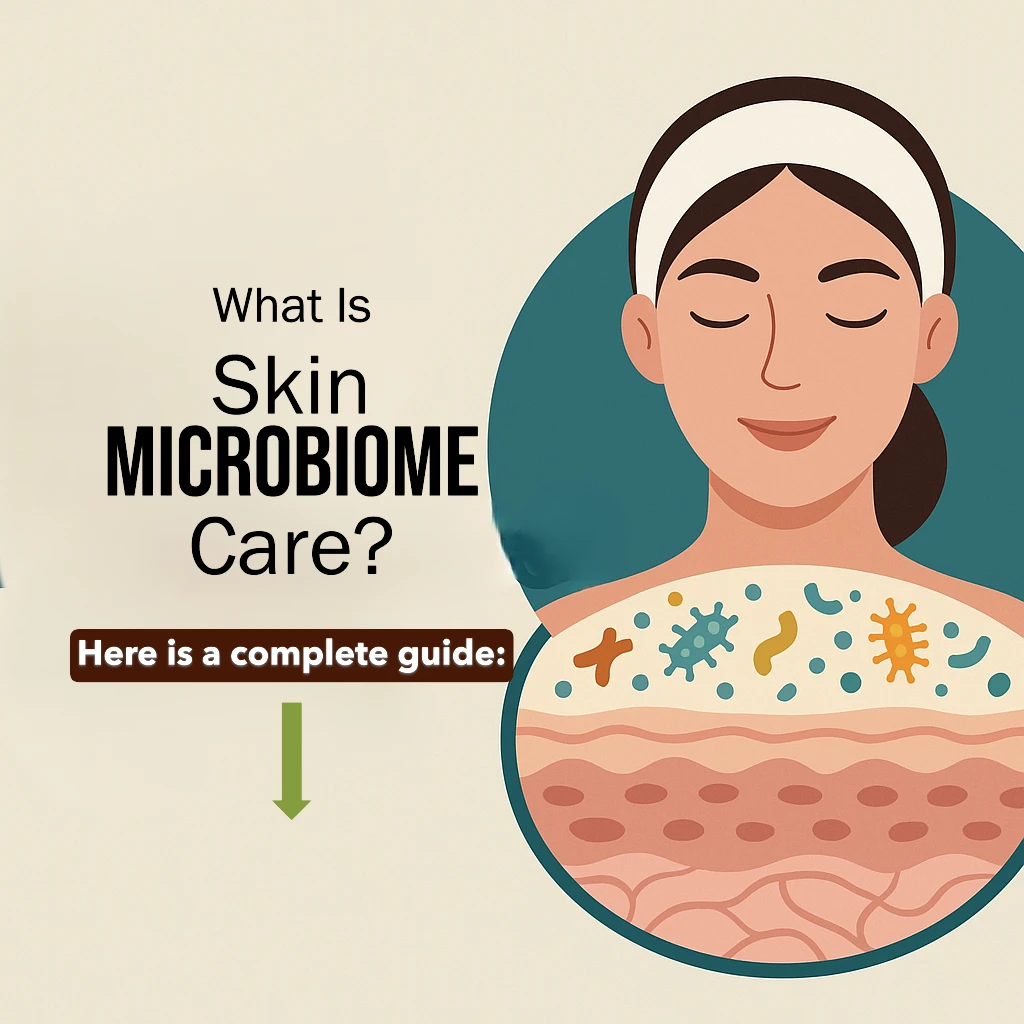What Is Skin Microbiome Care? The Key to a Healthy and Balanced Complexion
What Is Skin Microbiome Care? The Key to a Healthy and Balanced Complexion
Your skin is more than just a barrier — it’s home to a thriving ecosystem of microorganisms, including bacteria, fungi, and viruses. This community, known as the skin microbiome, plays a crucial role in maintaining your skin's health, balance, and resilience. In recent years, microbiome care has emerged as a key trend in skincare, and for good reason. Understanding and nurturing this invisible layer can lead to a clearer, calmer, and more radiant complexion.
What Is the Skin Microbiome?
The skin microbiome is made up of trillions of microorganisms that naturally live on the surface of your skin. Each person’s microbiome is unique, shaped by genetics, environment, diet, skincare products, and even stress levels. These microbes are not harmful; in fact, they help protect your skin from external threats like pollutants, harmful bacteria, and inflammation.
When the skin microbiome is balanced, it supports the skin’s barrier function, helps regulate pH levels, and even assists in wound healing. But when this balance is disrupted — often due to over-cleansing, harsh products, or antibiotics — it can lead to a range of issues including acne, sensitivity, eczema, or dryness.
Why Skin Microbiome Care Matters
-
Strengthens the Skin Barrier: A healthy microbiome keeps the outermost layer of your skin — the barrier — strong and intact. This barrier prevents moisture loss and blocks out harmful irritants.
-
Calms Inflammation: Beneficial microbes help regulate immune responses, which means they can reduce skin redness, irritation, and flare-ups from conditions like rosacea or dermatitis.
-
Balances Oil Production: When your microbiome is in harmony, it can help regulate sebum (oil) production, reducing the chances of clogged pores and breakouts.
-
Supports Anti-Aging: An intact microbiome protects against environmental stressors, such as pollution and UV damage, which contribute to premature aging.
How to Care for Your Skin Microbiome
-
Avoid Over-Cleansing: Washing your face too frequently or using harsh soaps can strip away the good bacteria. Opt for gentle, pH-balanced cleansers.
-
Use Microbiome-Friendly Products: Look for skincare labeled as "microbiome-friendly," "prebiotic," "probiotic," or "postbiotic." Prebiotics feed good bacteria, probiotics introduce beneficial strains, and postbiotics are by-products that help maintain skin health.
-
Simplify Your Routine: Overuse of active ingredients like acids or alcohol-based toners can disrupt the microbial balance. Stick to minimalist routines with nourishing ingredients.
-
Be Cautious With Antibacterial Products: While necessary in certain situations, frequent use can harm the skin’s natural microbial defenses.
-
Focus on Skin Barrier Repair: Ingredients like ceramides, squalane, and niacinamide support the skin barrier and, by extension, the microbiome.
Final Thoughts
Skin microbiome care is not just a trend — it's a scientifically-backed approach to achieving long-term skin health. By nurturing this invisible ecosystem, you're creating a solid foundation for clearer, more resilient skin. In an age where we often focus on what we remove from our skin, microbiome care reminds us of the importance of what we preserve and protect.

Related Blog
What Causes Oily Skin and Can It Be Managed Naturally? Exploring Root Causes and Gentle Solutions
Aug 2, 2025 by Admin
General
What Are the Signs That You Have Sensitive Skin? Key Symptoms to Help You Identify This Delicate Skin Type
Aug 1, 2025 by Admin
General